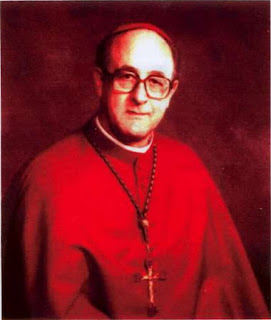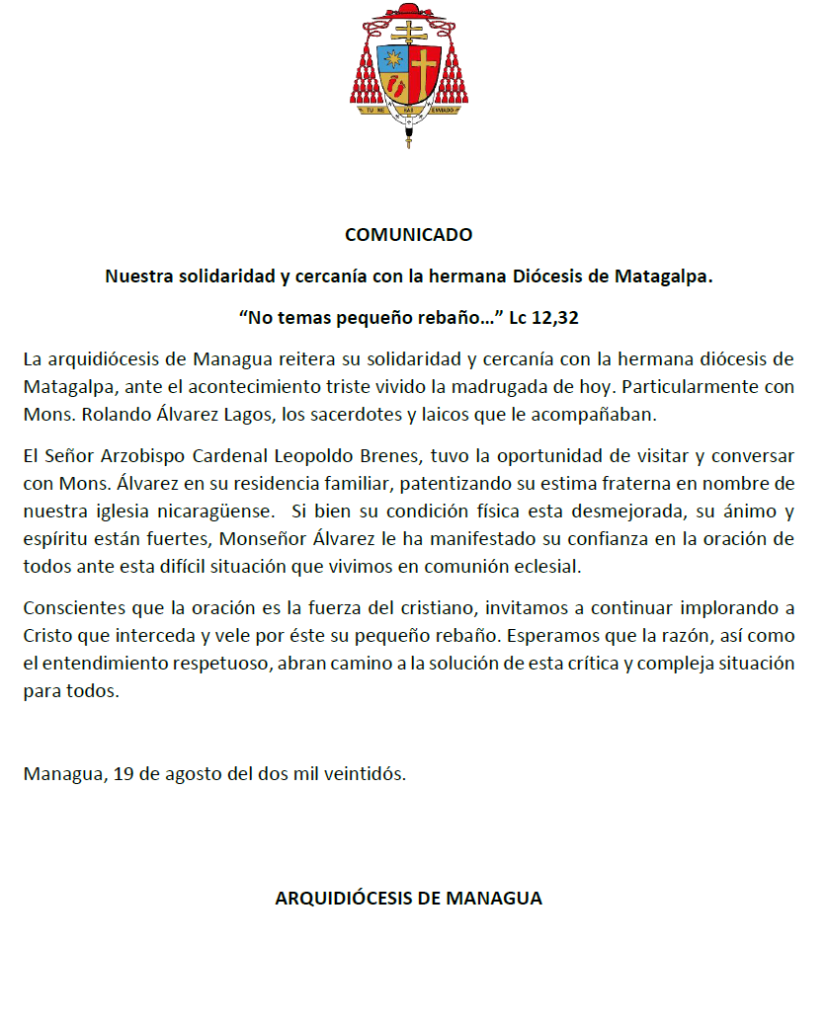The sociologist of religion Rodney Stark became one of the strongest and most unconventional defenders of the Church, and thus of the history of the West, against a large number of anti-Catholic falsifications of history that were deliberately disseminated.
The American sociologist of religion and outstanding apologist for the role of the Catholic Church in Western history passed away a month ago, shortly after his 88th birthday. On this occasion, we publish an interview with him that he granted to the Italian monthly Tempi in 2016 for the publication of his book "Bearing False Witness" ("Bearing False Witness "), the accusation of "non-Catholics" against the "illustrious fanatics," who pass off certain lies about the Church as history. Here is the post from 2016:
This is how Rodney Stark defended the Church against historical falsification
Paradoxically, the man who is perhaps the most effective living apologist for the role of the Roman Church in Western history is not even a Catholic. On the contrary, as he himself explains in his most recent book, he “grew up in the splendor of the Reformation” and “like all Lutherans” was “enlightened about the perversion of Catholics” every Sunday in the service. If Rodney Stark chose to write Bearing False Witness: Debunking Centuries of Anti-Catholic History, it was not out of a partisan impulse to fly a flag defend that was never his.
"I wrote this book to defend history."
The sociologist of religion and professor at Baylor University, a Baptist university in Texas, where he directs the Department of Religious Studies, is the author of dozens of titles that are successful in many countries around the world [only a few of which have been translated into German: Der Sieg des Abendlandes. Christianity and Capitalist Freedom and God's Warriors. The Crusades in a New Light ], is highly praised and dedicated to the "neglected history" that shows how it was despised Christianity that brought about the liberty, progress, and prosperity of our civilization. In Bearing False Witness' he has collected the ten 'anti-Catholic myths' that he has encountered most frequently in the course of his countless studies. Ten lies and false accusations which, according to Stark, "had and have too far-reaching consequences in popular thought to be left to isolated refutation."
- --Anti-Semitism, theologically motivated by the charge of deicide;
- --the existence of "enlightened" gospels hushed up and falsified by narrow-minded clergy;
- --the extermination of the pagans after the Christian "conquest" of Rome;
- --the "dark ages" of the Middle Ages, finally broken through by the rational revolution of the Enlightenment;
- --the Crusades as the first bloody act of European colonialism;
- --the crimes of the Spanish Inquisition and the witch hunts;
- --the case of Galileo as proof of the Church's anti-science;
- the justification of slavery;
- --the support of dictatorships against democracy;
- --the social and civilized superiority of the Protestant Reformation.
By naming names and quoting dozens of times, Stark in the book dissects in turn what he calls "illustrious fanatics" and fellow scholars who, rather than behaving as such, "eagerly" embraced anti-Catholic shenanigans, being "so convinced of the depravity and stupidity of the Roman Catholic Church that they need seek no further confirmation," let alone evidence, although some of them must have recognized that so many of these stories came "out of nowhere."
See e.g., there is the legend that Christopher Columbus discovered America while trying to prove by seafaring that the earth is round and not flat, as the Spanish cardinals who opposed his project supposedly “still” believed. A pure fairy tale invented in 1828 by writer Washington Irving, best known for inventing the headless horseman of Sleepy Hollow. Nonetheless, it "remained in textbooks and popular culture for decades, even after scientists uncovered its fraudulent origins" (in Austria and West Germany it could still be heard in schools in 2009).
The Pope who is no longer supposed to be Catholic
The animosity of the “illustrious fanatics” towards the Church, according to Stark, goes back a long way.
“The Reformation and the religious wars that followed produced bitter hatreds and false accusations that have persisted through the centuries. Too much of this remains in the collective memory of Protestant countries. In contrast, I am not aware of any comparable vicious anti-Protestant myths in Catholic countries.
And if in ancient Rome, according to E. Mary Smallwood's thesis taken up in the book, the alleged "exclusivity" of Jews and Christians led to unpopularity and persecution, in past centuries "the antagonism of polytheism to monotheism, which anti-Semitism and anti-Christianity has been replaced by a secular antagonism against all religions, which contain traditional teachings and a claim to truth". Hence the demand that the Pope should stop being Catholic in every respect.
According to Stark, "Voltaire and his colleagues invented the Dark Ages in order to proclaim that they were ridding civilization of religious backwardness."
In reality, however, there never was an obscurantist Middle Ages. On the contrary:
“The most important key to the rise of Western civilization has been the devotion of so many brilliant minds to the pursuit of knowledge. Not after illumination. Not after enlightenment. Not for wisdom. For knowledge!”
For Stark, it makes perfect sense that many of these "brilliant minds" were medieval Christians, because, "Christianity is a theological religion (founded in thinking about God) that is not concerned solely with the scientific endeavors to explain the world agrees but also gave birth to science: Science did not develop elsewhere because religions, which viewed the universe as an impenetrable mystery, made any scientific endeavor seem absurd". However, over time, Voltaire's and Enlightenment views were "converted by some intellectuals who rejected all religions and by many others who mistakenly believed."
There's a reason why "even popular encyclopedias today acknowledge that the Dark Ages were a myth." This means that, at least in the case of this myth, historical science has triumphed over ideology. It happens all the time, but no one notices. In order to debunk the ten anti-Catholic falsifications of history, Stark draws on the "prevailing opinions among qualified experts". It is a pity that these "only ever write for each other and do not make an effort to share their knowledge with the general public", while conversely, the "illustrious fanatics" continue to enjoy amazing credibility, at least in the media. Even if their dishonest theses have already been refuted and they themselves have admitted their hostility to the Church. This is the case reconstructed in the book by John Cornwell, the famous author of "Hitler's Pope " (German edition: " Pius XII - The Pope who has been silent "), a milestone in propaganda against Pius XII, which has been refuted many times and yet has been reprinted by the press or used in other texts, all errors included. The fact is, bitterly, that "the press always likes scandals and bad news."
And: “The media is really biased towards religion”.
If it is true that the "illustrious fanatics" are fomenting an "'informed' anti-Catholicism" that enjoys undeserved media coverage, then how can truth triumph in the clash of ideas? Stark has no doubts:
"Why should I trust 'my' experts more than those with anti-Catholic views? Quite simply: because my opinion is based on the consensus of authoritative and qualified historians, whom I quote carefully, while the anti-Catholic nonsense has no qualified advocates."
Stark's books are very well received by experts and find an exceptionally positive response among readers. Obviously, they will not find their way into the mainstream. This would require a rethink. He wants to contribute to this rethinking with his books.
It certainly requires courage to defend the theses of “Bearing False Witness”. In the very first chapter, the author endeavors to refute the notion that "the persecution of the Jews was justified for centuries in the name of God." A prejudice so ingrained in the collective imagination that even Catholics hardly seem to question it. The Baylor University professoron the other hand, on the basis of historical documents and non-preconceived "papist" positions, states that he found long ago that in reality "Christians who blamed the Jews for the crucifixion also tended to accept secular forms of anti-Semitism,’ from which it follows that hatred of Jews is by no means a Catholic ‘invention’. On the contrary, according to Stark, "what I learned later, in a next step, was the broad extent to which the Church had protected the Jews from violence".
Views like Obama's will be discredited
Even when it comes to current events, Stark has little trouble defying the mainstream. In his book, he writes that the first armed offensives by Catholic civilization (not the Church) against other religions and heresies took place in the 11th century when Christian supremacy was threatened by the spread of Islam. However, it is wrong to conclude that something similar is happening in the West today.
“The 'Clash of Civilizations' is not the rotten fruit of our 'Islamophobia'. I don't believe that the Christian West is about to become intolerant. Rather, I believe that the non-Christian West is becoming intolerant.”
Also included in the book is a polemical reference to Barack Obama, who in 2015 helped propagate the anti-Catholic reading of the Crusades (Stark's main theme) by declaring that not all religious violence in history has come from Islam and that Christians also "have done terrible deeds in the name of Christ." Stark's comment is dry:
"If terrorism continues, and it will, views like Obama's will be discredited: I am sure we will see a resurgence of support for Christian action."
And what does Stark, who is not Catholic, not Baptist and no longer Lutheran, believe in?
"I lost my Lutheran faith when I was in my twenties and remained a non-believer until my sixties, but was never an atheist until, after years of writing about religion, I concluded that Christianity was the most plausible explanation for it life offers.”
Translation: Giuseppe Nardi
Image : Youtube (Screenshot)
Trans: Tancred vekron99@hotmail.com
AMDG





















